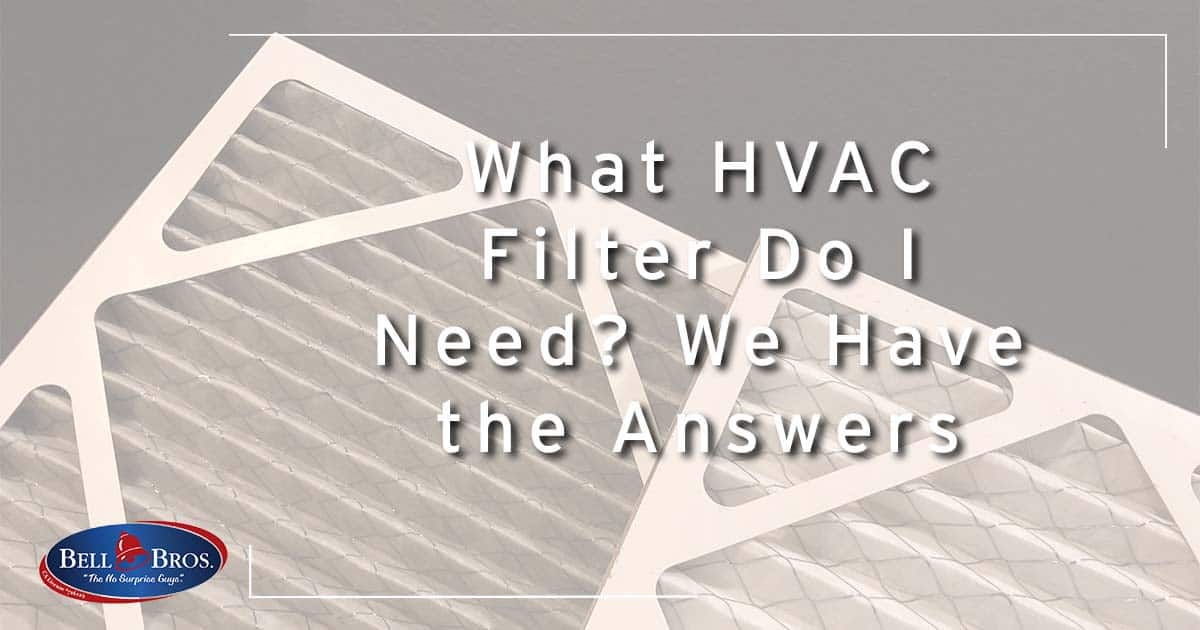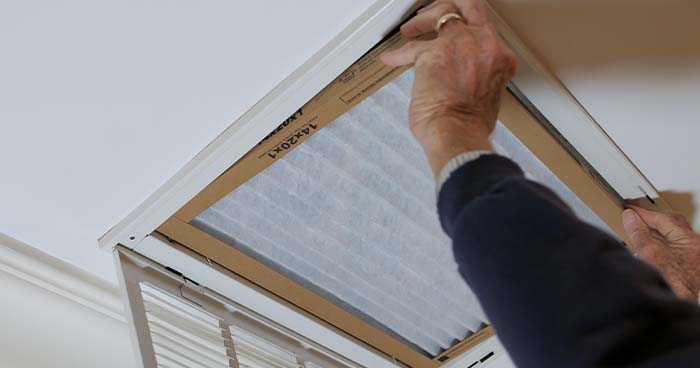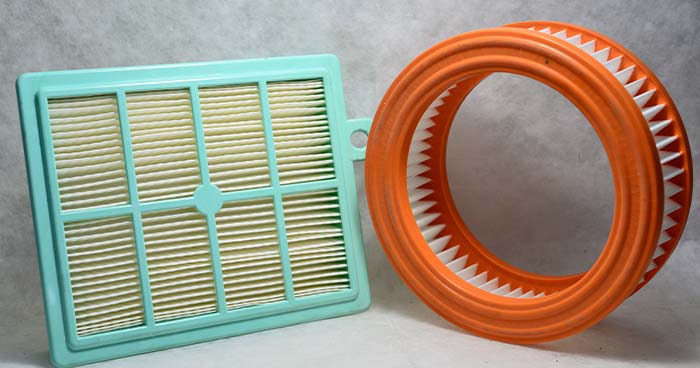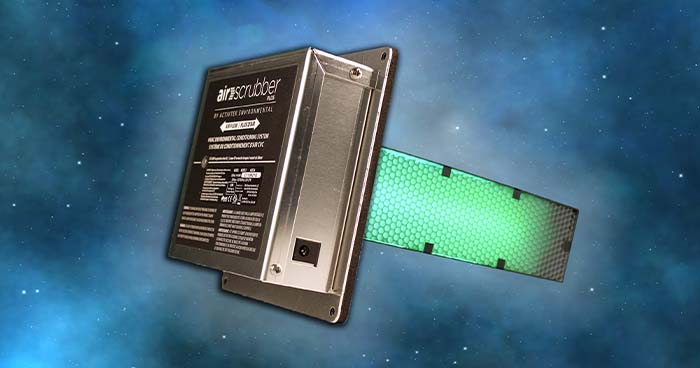What HVAC Filter Do I Need? We Have the Answers

There are so many different types of HVAC filters it could make a person’s head spin. When it comes to the question of what HVAC filter do I need, the answer depends on a few different factors.
There is no “one size fits all” solution when it comes to HVAC filters. The type you choose will ultimately depend on lifestyle, location, and health. Here are the pros and cons of the most common types of air filters.
What HVAC Filter do I Need for My Home?
Though there are many more on the market, these are the most common types of HVAC air filters you’ll find in a residential setting:
- Fiberglass Filters
- Pleated Filters
- HEPA Filters
- UV Filters
We mentioned above that a few key factors play a big role in determining the type of air filter you need. Ask yourself if you live in a dusty place or near a construction site. Similarly, does anyone in your home live with allergies or asthma? What about long haired pets? All these things play a role in the type of air filter you need.
- Filters with a MERV rating between 1 and 4 can catch things like pollen, dust mites, household debris, and carpet fibers. These filters are normally found in window cooling units.
- Filters with a rating between 5 and 8 will catch everything listed above, as well as mold spores, pet hair and indoor air contaminates from things like fabric protector and hair spray. For home HVAC systems, we recommend your filter has a MERV rating of at least 5.
- Any filters with a MERV rating between 9 and 12 can catch everything listed between ratings 1 through 8. They can also trap lead dust, humidifier dust, and pollution from auto emissions. Filters with this rating are used in hospital laboratories.
- And finally, filters with a rating of 13 to 16 will filter bacteria, tobacco smoke, and sneeze particles in addition to everything else listed above. Filters in the range of 13 to 16 are used in hospitals and surgery rooms.
Fiberglass Filters
Fiberglass filters have a few pros, but a lot of cons. First, they’re cheap. Some fiberglass filters are under $2. However, you get what you pay for.
Though fiberglass filters are incredibly affordable, they are very thin. Meaning, they can only capture things like dust and lint, and not much else.

Also, because of how thin they are, fiberglass filters need to be changed more often than other air filters. If you do have a fiberglass filter, we recommend checking and changing them every 30 days.
Pleated Filters
In the world of HVAC air filters, pleated filters are the MVP. They are rated between 5 and 12 on the MERV scale and have a wide price range. Pleated filters can be sold for $15 to $150, depending on the material and construction.
One of our favorite things about pleated filters is that, depending on the strength, they only need to be changed every 6 months.
HEPA Filters
The strongest filter of them all is a HEPA (High-Efficiency Particulate Air) filter. Fun fact: these filters are so strong they don’t rate on the MERV scale because the scale doesn’t go that high.
These HVAC air filters are found in hospitals, surgery centers, and other medical settings. However, they can be incredibly expensive because of how strong and effective they are.
Now, big reminder, just because HEPA filters exist does not mean your home needs one. In fact, we don’t recommend these for the typical homeowner. HEPA filters are perfect in homes where someone has a medical condition or has extreme asthma and allergies.

But for the normal home, it’s just not necessary. HEPA filters are also much larger than a normal HVAC filter. You may need modifications to your system to accommodate one.
UV Filters
Quick note, though we use the term “UV filter,” what we mean is a UV filtration light paired with an HVAC air filter. UV filtration lights are one of the best ways to truly sanitize your air, but they need to have the added power of an HVAC filter to truly be of good use.

When your furnace creates warm air, all that temperature treated air needs to be pushed through an air filter. The air filter removes dust, link, dander, and other large particles. The air then passes through a UV light.
The UV light essentially “zaps” unwanted particles out of the air. Meaning, the UV light negatively charges ions in the unwanted particles, making them heavy.
Once they are heavy, the particles drop out of your air. They will never reach your home.

